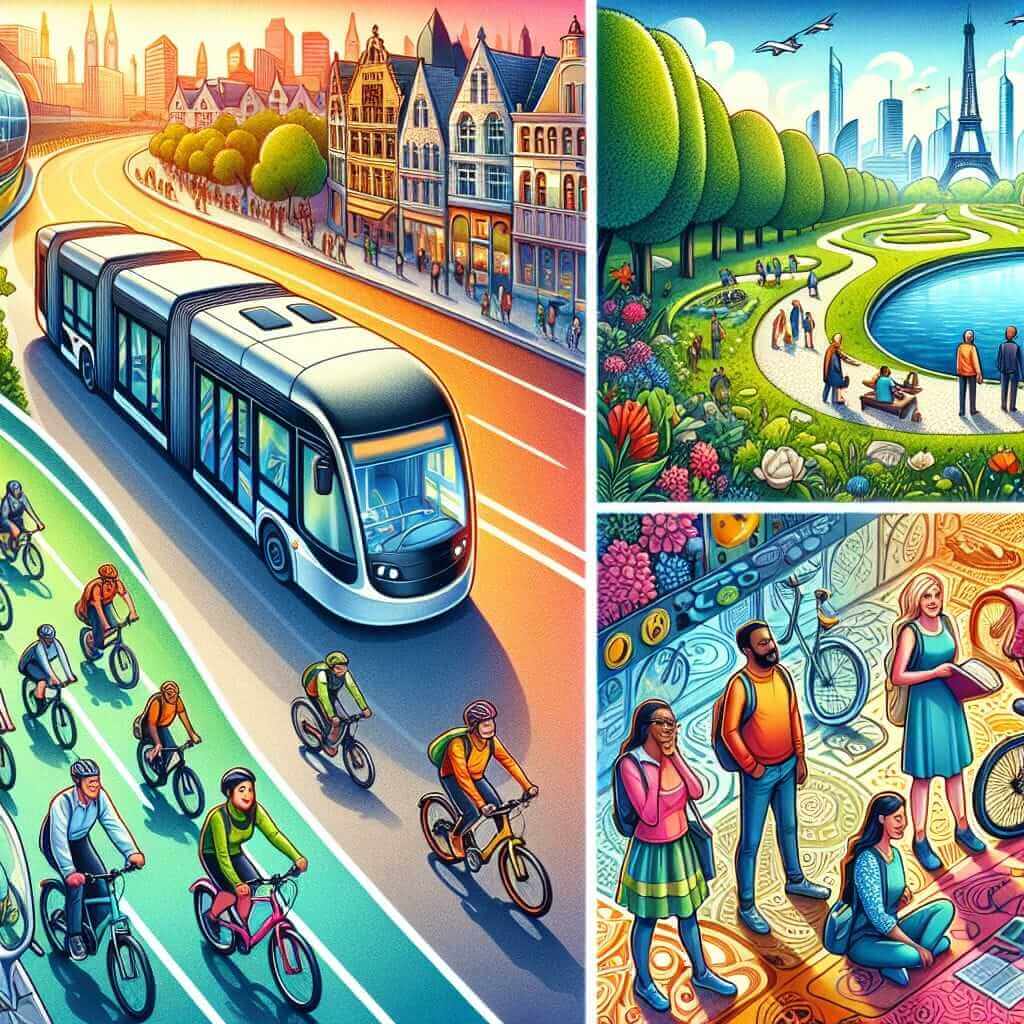As an IELTS Speaking examiner with over 20 years of experience, I often get asked by students how to tackle questions about global issues, particularly climate change. It’s a topic that frequently appears in the IELTS Speaking test, and understandably so, given its global significance.
This article aims to equip you with the knowledge and language skills needed to confidently and effectively answer “What are some solutions to climate change?” or similar questions in your IELTS Speaking exam.
Understanding the Question’s Scope
Before we delve into specific solutions, it’s crucial to understand what the examiner is looking for. They are assessing your ability to:
- Comprehend the question: Demonstrating you understand the complexities of climate change and the need for solutions.
- Articulate your thoughts: Clearly and logically explaining your chosen solutions.
- Use a range of vocabulary: Employing topic-specific vocabulary related to the environment, energy, and sustainability.
- Speak fluently and coherently: Maintaining a natural speaking pace with appropriate grammar and pronunciation.
Effective Solutions and Vocabulary
Here are some potential solutions to climate change and the vocabulary you can use to discuss them:
1. Transitioning to Renewable Energy Sources
Vocabulary: Renewable energy, solar power, wind power, hydropower, geothermal energy, sustainable, carbon footprint, fossil fuels, emissions
Example: “A crucial step in combating climate change is transitioning from fossil fuels to renewable energy sources. Investing in solar, wind, and hydropower can significantly reduce our reliance on polluting energy sources and decrease carbon emissions.”
2. Improving Energy Efficiency
Vocabulary: Energy efficiency, insulation, appliances, LED lighting, consumption, conserve
Example: “Enhancing energy efficiency in our homes and buildings is another vital solution. Simple measures like improving insulation, using energy-efficient appliances, and switching to LED lighting can dramatically reduce energy consumption.”
3. Sustainable Transportation
Vocabulary: Public transportation, electric vehicles, cycling infrastructure, carpooling, emissions, congestion
Example: “Promoting sustainable transportation options is essential. We need to invest in efficient public transport networks, encourage the use of electric vehicles, and create cycling-friendly cities. This not only reduces emissions but also alleviates traffic congestion.”
4. Reforestation and Forest Conservation
Vocabulary: Deforestation, reforestation, afforestation, carbon sinks, biodiversity, ecosystems
Example: “Protecting and restoring forests is critical. Trees act as carbon sinks, absorbing carbon dioxide from the atmosphere. Reforestation efforts and combating deforestation are crucial for mitigating climate change and preserving biodiversity.”
5. Sustainable Agriculture and Diet
Vocabulary: Sustainable agriculture, organic farming, livestock, methane emissions, plant-based diet, food waste
Example: “The agricultural sector contributes significantly to greenhouse gas emissions. Promoting sustainable agricultural practices, reducing livestock farming, and encouraging a more plant-based diet can play a substantial role in tackling climate change.”

IELTS Speaking Test Example
Let’s look at how you can incorporate these solutions into an actual IELTS Speaking test scenario:
Examiner: “What are some effective solutions to address climate change?”
Candidate: “Well, I believe there are several key approaches. Firstly, transitioning to renewable energy is essential. Governments and businesses need to invest heavily in solar, wind, and other sustainable energy sources to reduce our dependence on fossil fuels, which are a major contributor to greenhouse gas emissions.
Secondly, improving energy efficiency is crucial. This can be achieved through better insulation in buildings, using energy-efficient appliances, and promoting LED lighting. By consuming less energy, we can significantly reduce our environmental impact.
Furthermore, promoting sustainable transportation is vital. Investing in public transportation, encouraging cycling, and making electric vehicles more accessible can significantly decrease carbon emissions from the transportation sector.”
Analysis:
This response demonstrates a clear understanding of the question, uses a range of relevant vocabulary, and presents solutions in a structured and logical manner. The candidate provides specific examples to support their points, ensuring clarity and coherence in their response.
Tips for Success
- Stay Updated: Keep abreast of current events and advancements related to climate change.
- Practice Regularly: Practice speaking about different solutions using a wide range of vocabulary.
- Think Critically: Develop your own opinions and be prepared to elaborate on your chosen solutions.
- Be Confident: Speak clearly, maintain eye contact, and demonstrate your knowledge with conviction.
Conclusion
By understanding the nuances of the question, using appropriate vocabulary, and presenting well-structured answers, you can confidently address questions about climate change solutions in your IELTS Speaking test. Remember to practice regularly and stay informed about this pressing global issue. Your efforts will not only benefit your exam performance but also contribute to a more sustainable future.